[Tamba Sasayama City] Enjoy the delicious taste of black edamame, strawberries, and beans at a farmhouse
![[Tamba Sasayama City] Enjoy the delicious taste of black edamame, strawberries, and beans at a farmhouse](https://resources.matcha-jp.com/resize/720x2000/2023/12/08-155669.webp)
The main crops are rice and black beans, and thanks to the techniques cultivated over many years, they have a reputation for being extremely delicious. You can also try harvesting black edamame in the fall, strawberries in the winter, and beans in the summer. Eat it on the spot, buy it and take it home to fully enjoy the bounty of the farm.
-
Table of Contents
- Making soil to grow delicious rice and vegetables
- The rich and sweet black edamame is very popular.
- A newly born specialty product, summer dekansho beans
- You can also enjoy strawberry picking from winter to spring.
- Basic information
Making soil to grow delicious rice and vegetables
![[Tamba Sasayama City] Enjoy the delicious taste of black edamame, strawberries, and beans at a farmhouse](https://resources.matcha-jp.com/resize/720x2000/2023/12/08-155670.webp)
Tanba Sasayama was once a swamp, so its clay soil is rich in nutrients. The basin is surrounded by mountains, and there is a large difference in temperature between day and night, resulting in fog in winter. This foggy climate is said to be good for growing crops; the humid air provides moisture to the crops, and when the fog clears, the weather becomes nice and promotes photosynthesis.
The reason why the rice, vegetables, and local specialties such as black soybeans, beans, mountain yams, and chestnuts grown in Tamba-Sasayama are so delicious is due to these climatic conditions, as well as the farmers' techniques.
![[Tamba Sasayama City] Enjoy the delicious taste of black edamame, strawberries, and beans at a farmhouse](https://resources.matcha-jp.com/resize/720x2000/2023/12/08-155671.webp)
Tamba Tabuchi Farm is currently a large-scale farm, but the father of representative Shinya Tabuchi, Kiyohiko, became a full-time farmer about 50 years ago.
The high economic growth period of the Showa era brought modernization to agriculture, and systems that used mechanization, chemical fertilizers, and pesticides spread throughout Japan. ``Tamba Tabuchi Farm'' is no exception, and has quickly adopted mechanization and introduced chemical fertilizers to increase yields. However, as time passed, the soil became thinner.
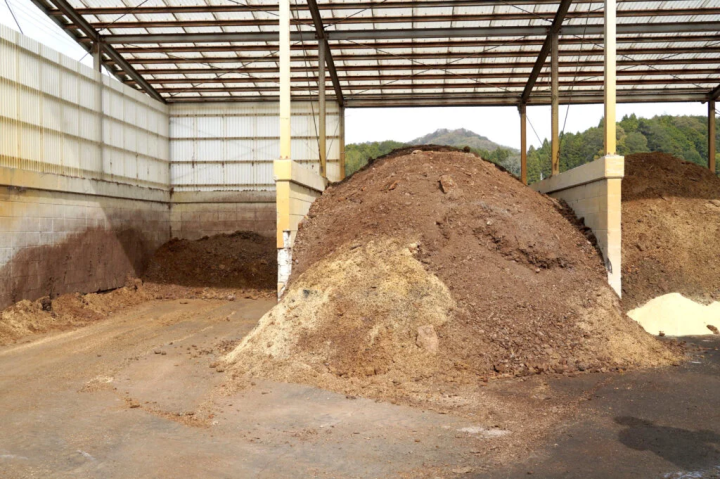
We can't continue like this and want to restore the circulation of the natural environment, so for about 15 years we have been working on making our own compost and cultivating soil. Pesticides have also been gradually reduced. The soil that has become depleted will not return to its original state quickly, but instead of rushing, we must take our time and work hard to deal with the soil. Thanks to their efforts, soil preparation is progressing smoothly.
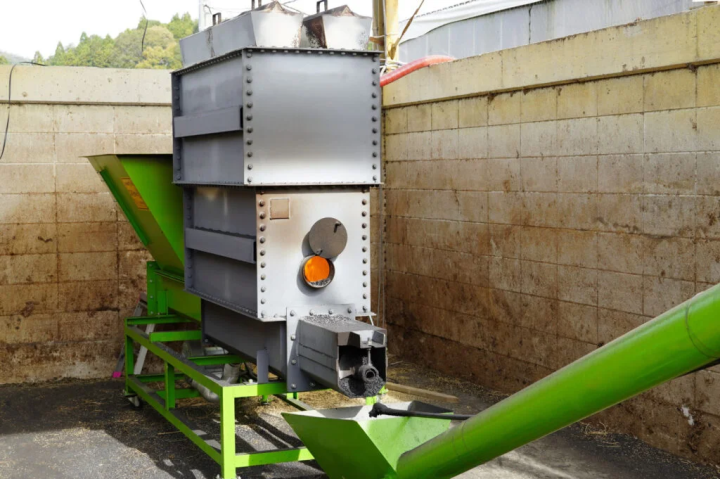
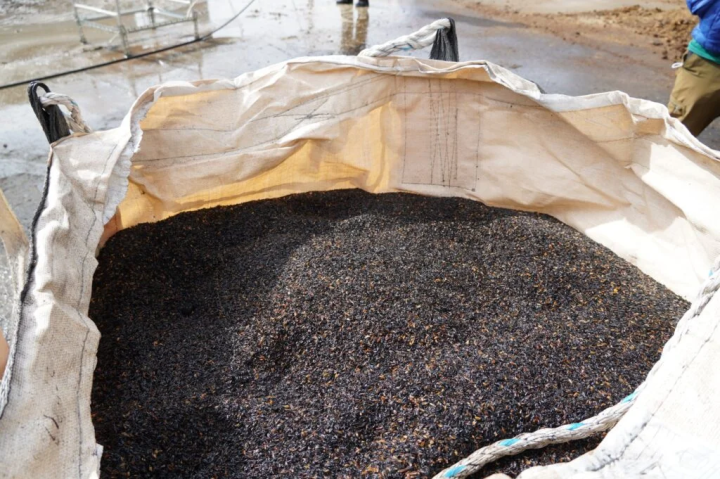
Homemade compost is made by adding rice bran and rice husk charcoal (rice husk charcoal) to cow dung and fermenting it naturally using the power of microorganisms. It is said that rice husk charcoal has good effects because it contains air.
"It's easier to grow using chemical fertilizers, but for black soybeans, we only supplement the nitrogen content with natural compost. Natural products contain a variety of substances, which makes the crops healthier," says Managing Director. Mr. Yasuhisa Tabuchi.
The rich and sweet black edamame is very popular.
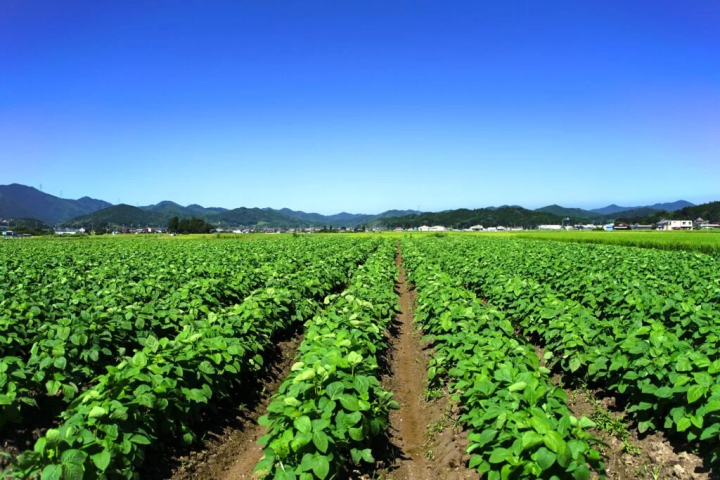
The black edamame field at Tamba Tabuchi Farm is 8 to 9 hectares, and about half of the beans are for general sale and half are for harvesting experience.
The harvest time for black edamame is usually about three weeks from the beginning of October, and it is still hot until mid-October. Since the plants become weak when the temperature is high, they are immediately stored in a large cold storage warehouse and shipped one after another in about half a day.
We sell our products by mail order and at the farm's direct sales office, so regular customers come here every year.
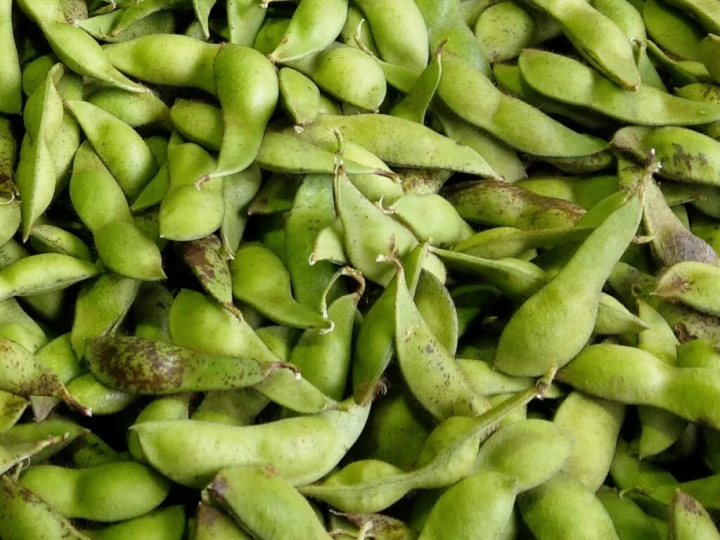
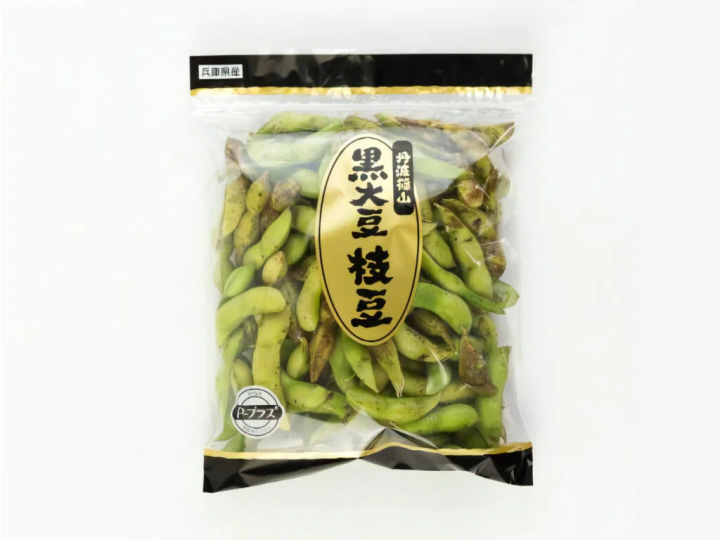
The taste of vegetables differs depending on the soil quality, and black edamame is no exception, and the taste can vary greatly depending on the location even in Tamba Sasayama. Cultivation management is more difficult in clay soil than in sandy soil, but it produces large and delicious fruit.
The soil at Tamba Tabuchi Farm is a solid clay, and thanks to the power of homemade compost, the soil is truly rich and sweet.
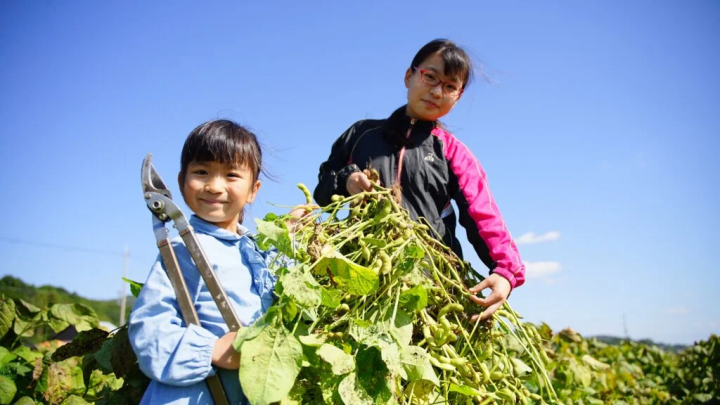
About half of the vast field is a space where you can experience harvesting. The stems of well-grown black edamame are quite thick, but it's very interesting to cut them down with special large scissors, and you'll get excited when you cut off the large branches.
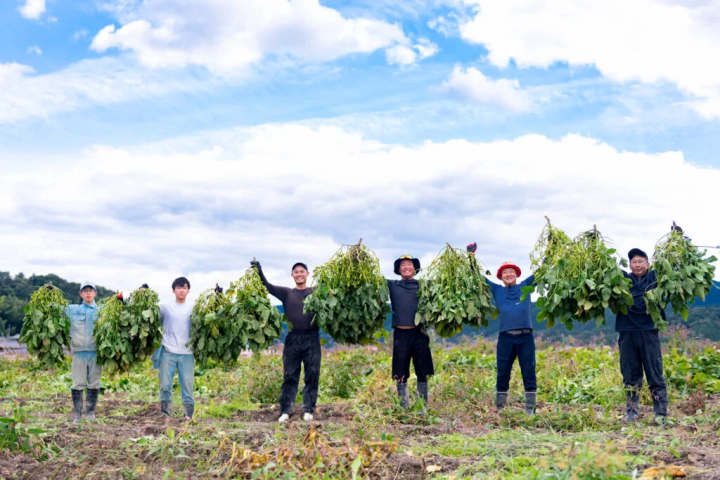
During this period, you can experience harvesting without making a reservation if there is space available. If you bring rain boots, easy-to-move clothes that won't get wet with dirt, a hat to protect you from the sun, and work gloves, scissors and bags will be provided in the field. There is also a parking lot and restrooms, so you can have fun with your children.
Black edamame harvest experience date and time: August 19th (Sat) 19:20-20:20
Period: October 5th (opening date) ~ Approximately 3 weeks (open every day during the period)
Note: PDF file
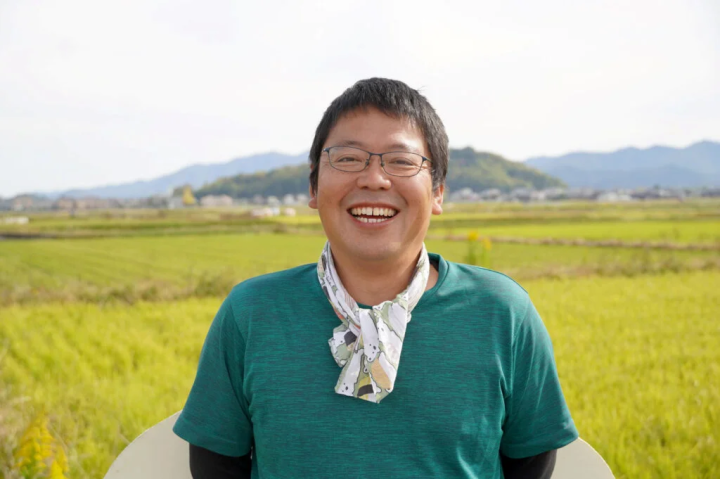
``Here, I will give a lecture on how to boil black edamame and let people sample it,'' says Managing Director Tabuchi, who will stock up at the direct sales store whenever he has time. Learn how to boil and eat black edamame from a professional who is familiar with black edamame and can put it into practice right away. Once you know the trick, you can enjoy the delicious black edamame you have harvested.
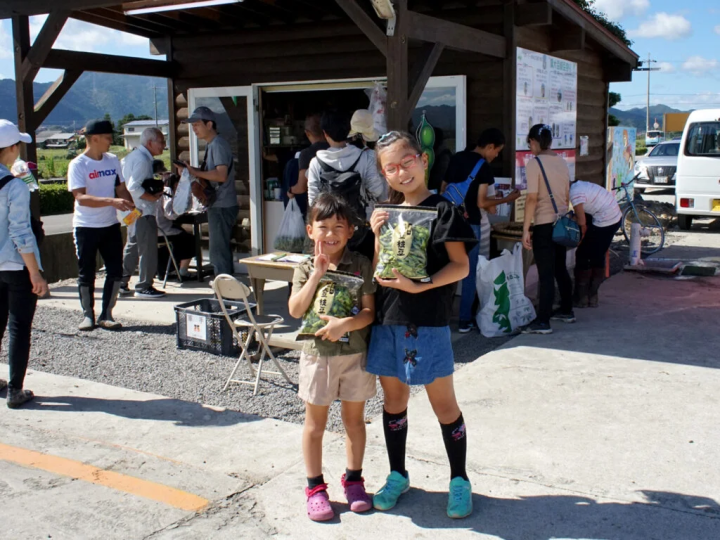
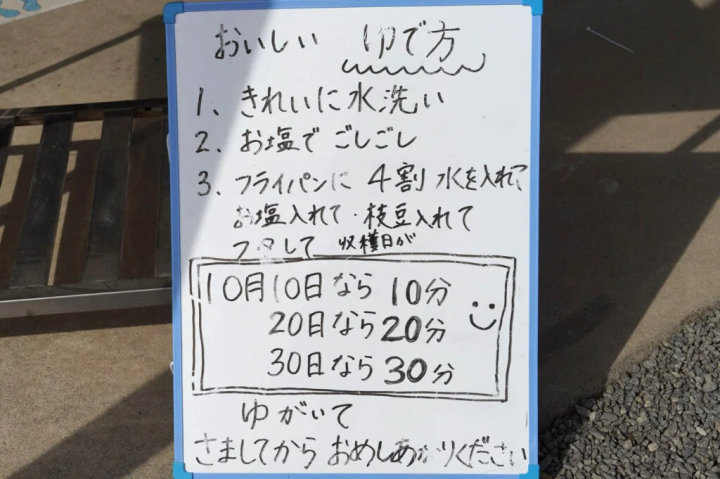
“Originally, I only wanted to make them, but at the end of the season, a person passing by the farm came to buy black edamame and asked if I could pick them since they were sold out. People who saw it said they wanted to do it too...I thought it would make people happy, so it all started naturally.''
A newly born specialty product, summer dekansho beans
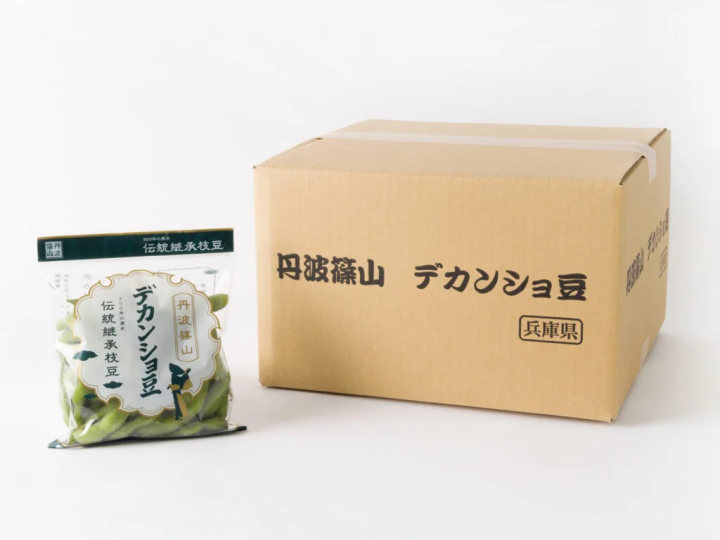
"Dekansho Beans" is a new initiative unique to Tamba Sasayama, where delicious beans are grown. This project was started in 2020 by Tanba-Sasayama City, the Chamber of Commerce and Industry, and five farmers to make the commonly sold summer edamame even more delicious using Tanba-Sasayama's climate and technology. something like. Because they are made by very particular producers, we are able to produce edamame that is much sweeter and richer.
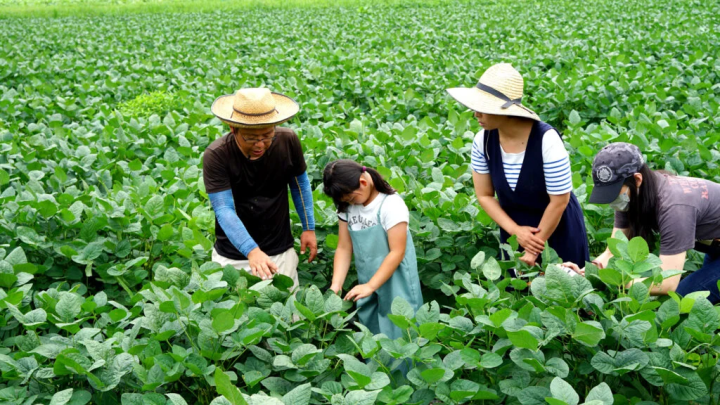
At Tabuchi Farm, you can also experience harvesting Dekansho beans. Since July and August are right around the time of summer vacation, this could be a good topic for homework. Dekansho edamame can be easily pulled out, so even children can enjoy it.
Dekansho bean harvest experience fee: 1,000 yen for 5 Dekansho beans What to bring: Gloves, boots, hat Period: Mid-July to mid-August *Held only in the morning, reservations required
You can also enjoy strawberry picking from winter to spring.
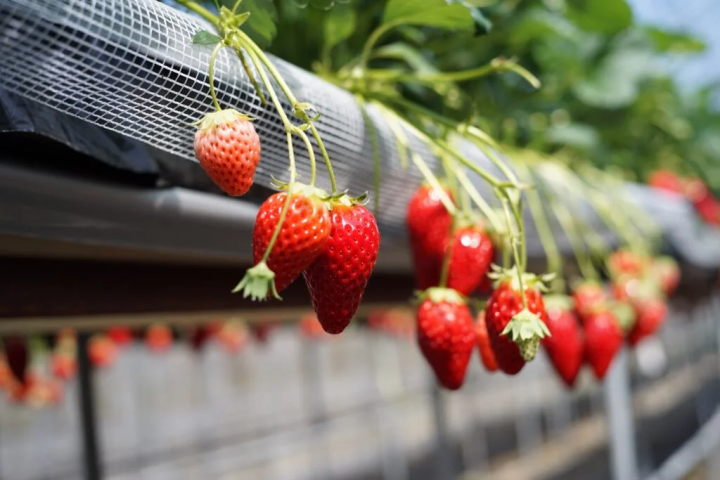
Strawberry picking is a fun activity from January to May. We will pick strawberries that are grown in a greenhouse.
The type is Akihime, a strawberry with a good balance of sweetness and sourness. The cultivation method leaves plenty of space between the plants and waits for them to grow slowly, so the taste is good, and the sweet aroma of freshly harvested fruit gives you an irresistible feeling of happiness.
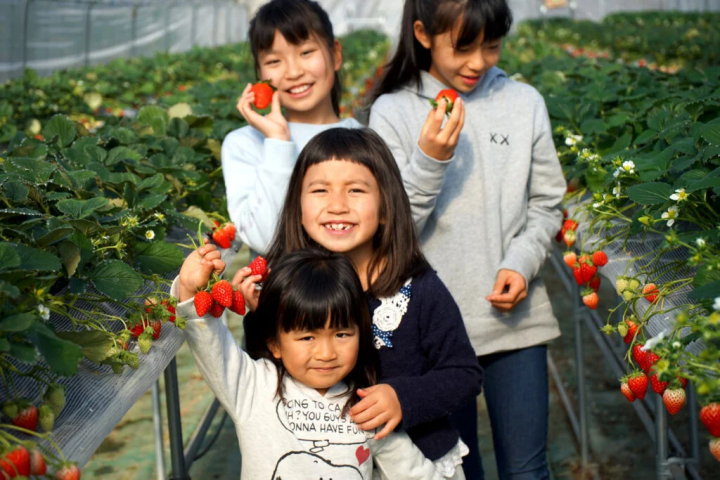
Strawberry picking fee: 500 yen for 1-2 years old, 1,500 yen for 3-10 years old, 2,500 yen for 11 years old and above Period: January 2nd to late May Hours: 9:00-12:00 *Reservation required 5 days before arrival ( 090-8650-0415)
After enjoying tasting food at Tamba Tabuchi Farm, you can also buy rice. In season, you can buy black edamame and decansho beans, and in other seasons, you can also buy black soybeans and mochi online, so it's a good idea to order your favorites.
(Writer Matsuda/West Plan)
*This article is information as of November 2023. Prices include tax. Product contents and prices may change.
Basic information
Tamba Tabuchi Farm Co., Ltd.
Address: 158-3 Kuchisakamoto, Tanba Sasayama City, Hyogo Prefecture
Phone number: 090-8650-0415 (for agricultural experience)
Business hours: Reception 9:00-17:00
Closed: Open every day during the period
Access: Approximately 10 minutes north from Maizuru-Wakasa Expressway “Tannan-Sasayamaguchi IC”
Parking: Available (60 spaces)
HP: https://www.tabuchi-farm.jp/
Online Shop: https://tabuchi-farm.stores.jp/
What are good things and good experiences? There are many characteristics such as having a story to tell, overflowing with the thoughts of the creator, having a history, and being loved by the locals. Have you ever come across a special thing or experience that made you want to tell someone about it? And as a result of telling, someone new leads to something. We think that's what "good" is all about. In order to deliver such encounters to our customers, we discover Hyogo's good things based on the concept of "talk, communicate, and connect", and provide information that will shorten the emotional distance between customers and the region of Hyogo Prefecture.
The contents on this page may partially contain automatic translation.































![[During Your Kumano Trip] Dorokyo Meguri no Sato Kumano River](https://resources.matcha-jp.com/resize/720x2000/2025/11/05-249123.jpeg)
![[Kagoshima] Enjoy Minamisatsuma City to the Fullest! A Guide to the Scenic Beauty and Culture of Five Areas](https://resources.matcha-jp.com/resize/720x2000/2026/02/15-258755.webp)
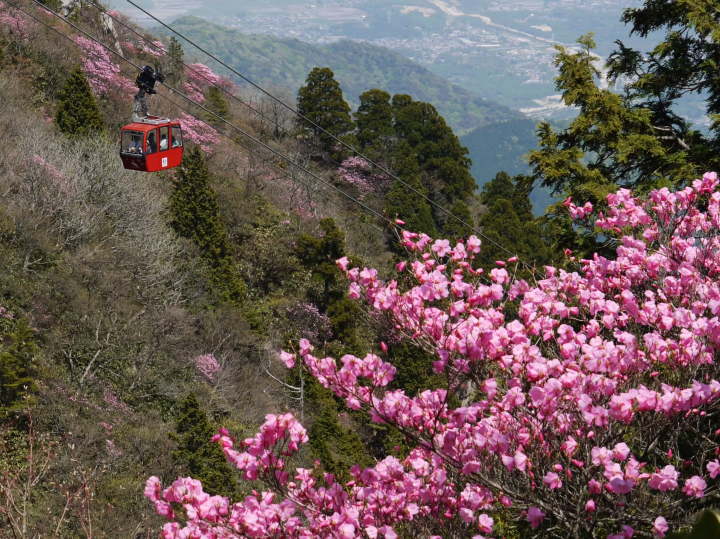
![[Yufuin]Yufuin in 100 Minutes: Quick Access Guide](https://resources.matcha-jp.com/resize/720x2000/2026/02/15-258738.webp)
![[Shinjuku Nishiguchi HALC] About the d Point Campaign](https://resources.matcha-jp.com/resize/720x2000/2026/02/14-258714.webp)